第32章
"When the harvest is gathered, all hands in the farmhouse, young and old together, turn to carding, spinning, and weaving this cotton; and out of this home-spun stuff a heavy and durable material, adapted to the rough handling it has to go through for two or three years, they clothe themselves, and the surplus they carry to the nearest town, where the shopkeeper buys it for the use of the population of the towns, and the boat people on the rivers. With this homespun stuff, nine out of every ten human beings in this country are clothed, the manufacture varying in quality from the coarsest dungaree to the finest nanking, all produced in the farm-houses, and costing the producer literally nothing beyond the value of the raw material, or rather of the sugar which he exchanged for it, the produce of his own husbandry.
Our manufacturers have only to contemplate for a moment the admirable economy of this system, and, so to speak, its exquisite dovetailing with the other pursuits of the farmer, to be satisfied, at a glance, that they have no chance whatever in the competition, as far as the coarser fabrics are concerned. It is, perhaps, characteristic of China alone, of all countries in the world, that the loom is to be found in every well-conditioned homestead. The people of all other countries content themselves with carding and spinning, and at that point stop short, sending the yarn to the professional weaver to be made into cloth. It was reserved for the thrifty Chinaman to carry the thing out to perfection. He not only cards and spins his cotton, but he weaves it himself, with the help of his wives and daughters, and farm servants, and hardly ever confines himself to producing for the mere wants of his family, but makes it an essential part of his season's operations to produce a certain quantity of cloth for the supply of neighbouring towns and rivers.
"The Fui-kien farmer is thus not merely a farmer, but an agriculturist and a manufacturer in one. He produces this cloth literally for nothing, beyond the cost of the raw material: lie produces it, as shown, under his own roof-tree, by the hands of his women and farm servants; it costs neither extra labour nor extra time. He keeps his domestics spinning and weaving while his crops are growing, and after they are harvested, during rainy weather, when out-of-door labour cannot be pursued. In short, at every available interval throughout the year round, does this model of domestic industry pursue his calling, and engage himself upon something useful."As a complement of Mr. Mitchell's statement may be considered the following description Lord Elgin gives of the rural population he met with during his voyage up the Yang-tse-kiang:
"What I have seen leads me to think that the rural population of China is, generally speaking, well-doing and contented. I worked very hard, though with only indifferent success, to obtain from them accurate information respecting the extent of their holdings, the nature of their tenure, the taxation which they have to pay, and other kindred matters. I arrived at the conclusion that, for the most part, they hold their lands, which are of very limited extent, in full property from the Crown, subject to certain annual charges of no very exorbitant amount, and that these advantages, improved by assiduous industry, supply abundantly their simple wants, whether in respect of food or clothing."It is this same combination of husbandry with manufacturing industry, which, for a long time, withstood, and still checks, the export of British wares to East India; but there that combination was based upon a peculiar constitution of the landed property which the British, in their position as the supreme landlords of the country, had it in their power to undermine, and thus forcibly convert part of the Hindu self-sustaining communities into mere farms, producing opium, cotton, indigo, hemp, and other raw materials, in exchange, for British stuffi.
In China the English have not yet wielded this power, nor are they likely ever to do so.
~~~~~~~~~~~~~~~~~~~~~~~~~~~~~~~~~~~~~~~~~~~~~~~~~~~~~~~~~~~~~~~~~~~~~~~~~~~~~~~~~~~~~~~~~~~~~~~~~~~~~~~~~~~~~~~~~~~~~~~~~~~~~~~~~~~~~~~~~~~~~~~~ENGLISH POLITICS
~~~~~~~~~~~~~~~~~~~~~~~~~~~~~~~~~~~~~~~~~~~~~~~~~~~~~~~~~~~~~~~~~~~~~~~~New York Daily Tribune February 14, 1860
by KARL MARX
THE MOST interesting topics touched upon in the Parliarnentary address debates were the third Chinese war, the commercial treaty with France, and the Italian complication. The Chinese question, it ought to be under-stood, involves not only an international question, but also a constitutional question of vital import. The second Chinese war, undertaken on the arbitrary behest of Lord Palmerston, having led first to a vote of censure against his Cabinet, and then to a forcible dissolution of the House of Commons -- the new House, although elected under his own auspices, was never called upon to cashier the sentence passed by its predecessor. To this very nroment Lord Palmerston's second Chinese war stands condemned by a Parliamentary verdict. But this is not all.